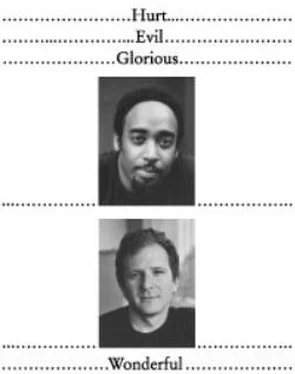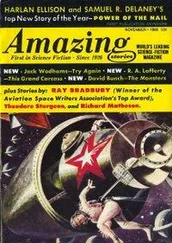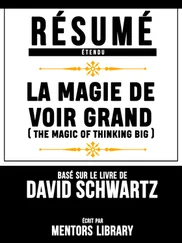Malcolm Gladwell - Blink - The Power of Thinking Without Thinking
Здесь есть возможность читать онлайн «Malcolm Gladwell - Blink - The Power of Thinking Without Thinking» весь текст электронной книги совершенно бесплатно (целиком полную версию без сокращений). В некоторых случаях можно слушать аудио, скачать через торрент в формате fb2 и присутствует краткое содержание. Жанр: Культурология, Психология, на английском языке. Описание произведения, (предисловие) а так же отзывы посетителей доступны на портале библиотеки ЛибКат.
- Название:Blink: The Power of Thinking Without Thinking
- Автор:
- Жанр:
- Год:неизвестен
- ISBN:нет данных
- Рейтинг книги:3 / 5. Голосов: 1
-
Избранное:Добавить в избранное
- Отзывы:
-
Ваша оценка:
- 60
- 1
- 2
- 3
- 4
- 5
Blink: The Power of Thinking Without Thinking: краткое содержание, описание и аннотация
Предлагаем к чтению аннотацию, описание, краткое содержание или предисловие (зависит от того, что написал сам автор книги «Blink: The Power of Thinking Without Thinking»). Если вы не нашли необходимую информацию о книге — напишите в комментариях, мы постараемся отыскать её.
Blink: The Power of Thinking Without Thinking — читать онлайн бесплатно полную книгу (весь текст) целиком
Ниже представлен текст книги, разбитый по страницам. Система сохранения места последней прочитанной страницы, позволяет с удобством читать онлайн бесплатно книгу «Blink: The Power of Thinking Without Thinking», без необходимости каждый раз заново искать на чём Вы остановились. Поставьте закладку, и сможете в любой момент перейти на страницу, на которой закончили чтение.
Интервал:
Закладка:
In late July, both sides came to Suffolk and set up shop in the huge, windowless rooms known as test bays on the first floor of the main JFCOM building. Marine Corps, air force, army, and navy units at various military bases around the country stood by to enact the commands of Red and Blue Team brass. Sometimes when Blue Team fired a missile or launched a plane, a missile actually fired or a plane actually took off, and whenever it didn’t, one of forty-two separate computer models simulated each of those actions so precisely that the people in the war room often couldn’t tell it wasn’t real. The game lasted for two and a half weeks. For future analysis, a team of JFCOM specialists monitored and recorded every conversation, and a computer kept track of every bullet fired and missile launched and tank deployed. This was more than an experiment. As became clear less than a year later—when the United States invaded a Middle Eastern state with a rogue commander who had a strong ethnic power base and was thought to be harboring terrorists—this was a full dress rehearsal for war.
The stated purpose of Millennium Challenge was for the Pentagon to test a set of new and quite radical ideas about how to go to battle. In Operation Desert Storm in 1991, the United States had routed the forces of Saddam Hussein in Kuwait. But that was an utterly conventional kind of war: two heavily armed and organized forces meeting and fighting in an open battlefield. In the wake of Desert Storm, the Pentagon became convinced that that kind of warfare would soon be an anachronism: no one would be foolish enough to challenge the United States head-to-head in pure military combat. Conflict in the future would be diffuse. It would take place in cities as often as on battlefields, be fueled by ideas as much as by weapons, and engage cultures and economies as much as armies. As one JFCOM analyst puts it: “The next war is not just going to be military on military. The deciding factor is not going to be how many tanks you kill, how many ships you sink, and how many planes you shoot down. The decisive factor is how you take apart your adversary’s system. Instead of going after war-fighting capability, we have to go after war-making capability. The military is connected to the economic system, which is connected to their cultural system, to their personal relationships. We have to understand the links between all those systems.”
With Millennium Challenge, then, Blue Team was given greater intellectual resources than perhaps any army in history. JFCOM devised something called the Operational Net Assessment, which was a formal decision-making tool that broke the enemy down into a series of systems—military, economic, social, political—and created a matrix showing how all those systems were interrelated and which of the links among the systems were the most vulnerable. Blue Team’s commanders were also given a tool called Effects-Based Operations, which directed them to think beyond the conventional military method of targeting and destroying an adversary’s military assets. They were given a comprehensive, real-time map of the combat situation called the Common Relevant Operational Picture (CROP). They were given a tool for joint interactive planning. They were given an unprecedented amount of information and intelligence from every corner of the U.S. government and a methodology that was logical and systematic and rational and rigorous. They had every toy in the Pentagon’s arsenal.
“We looked at the full array of what we could do to affect our adversary’s environment—political, military, economic, societal, cultural, institutional. All those things we looked at very comprehensively,” the commander of JFCOM, General William F. Kernan, told reporters in a Pentagon press briefing after the war game was over. “There are things that the agencies have right now that can interrupt people’s capabilities. There are things that you can do to disrupt their ability to communicate, to provide power to their people, to influence their national will . . . to take out power grids.” Two centuries ago, Napoleon wrote that “a general never knows anything with certainty, never sees his enemy clearly, and never knows positively where he is.” War was shrouded in fog. The point of Millennium Challenge was to show that, with the full benefit of high-powered satellites and sensors and supercomputers, that fog could be lifted.
This is why, in many ways, the choice of Paul Van Riper to head the opposing Red Team was so inspired, because if Van Riper stood for anything, it was the antithesis of that position. Van Riper didn’t believe you could lift the fog of war. His library on the second floor of his house in Virginia is lined with rows upon rows of works on complexity theory and military strategy. From his own experiences in Vietnam and his reading of the German military theorist Carl von Clausewitz, Van Riper became convinced that war was inherently unpredictable and messy and nonlinear. In the 1980s, Van Riper would often take part in training exercises, and, according to military doctrine, he would be required to perform versions of the kind of analytical, systematic decision making that JFCOM was testing in Millennium Challenge. He hated it. It took far too long. “I remember once,” he says, “we were in the middle of the exercise. The division commander said, ‘Stop. Let’s see where the enemy is.’ We’d been at it for eight or nine hours, and they were already behind us. The thing we were planning for had changed.” It wasn’t that Van Riper hated all rational analysis. It’s that he thought it was inappropriate in the midst of battle, where the uncertainties of war and the pressures of time made it impossible to compare options carefully and calmly.
In the early 1990s, when Van Riper was head of the Marine Corps University at Quantico, Virginia, he became friendly with a man named Gary Klein. Klein ran a consulting firm in Ohio and wrote a book called Sources of Power, which is one of the classic works on decision making. Klein studied nurses, intensive care units, firefighters, and other people who make decisions under pressure, and one of his conclusions is that when experts make decisions, they don’t logically and systematically compare all available options. That is the way people are taught to make decisions, but in real life it is much too slow. Klein’s nurses and firefighters would size up a situation almost immediately and act, drawing on experience and intuition and a kind of rough mental simulation. To Van Riper, that seemed to describe much more accurately how people make decisions on the battlefield.
Once, out of curiosity, Van Riper and Klein and a group of about a dozen Marine Corps generals flew to the Mercantile Exchange in New York to visit the trading floor. Van Riper thought to himself, I’ve never seen this sort of pandemonium except in a military command post in war—we can learn something from this. After the bell rang at the end of the day, the generals went onto the floor and played trading games. Then they took a group of traders from Wall Street across New York Harbor to the military base on Governor’s Island and played war games on computers. The traders did brilliantly. The war games required them to make decisive, rapid-fire decisions under conditions of high pressure and with limited information, which is, of course, what they did all day at work. Van Riper then took the traders down to Quantico, put them in tanks, and took them on a live fire exercise. To Van Riper, it seemed clearer and clearer that these “overweight, unkempt, long-haired” guys and the Marine Corps brass were fundamentally engaged in the same business—the only difference being that one group bet on money and the other bet on lives. “I remember the first time the traders met the generals,” Gary Klein says. “It was at the cocktail party, and I saw something that really startled me. You had all these marines, these two- and three-star generals, and you know what a Marine Corps general is like. Some of them had never been to New York. Then there were all these traders, these brash, young New Yorkers in their twenties and thirties, and I looked at the room and there were groups of two and three, and there was not a single group that did not include members of both sides. They weren’t just being polite. They were animatedly talking to each other. They were comparing notes and connecting. I said to myself, These guys are soul mates. They were treating each other with total respect.”
Читать дальшеИнтервал:
Закладка:
Похожие книги на «Blink: The Power of Thinking Without Thinking»
Представляем Вашему вниманию похожие книги на «Blink: The Power of Thinking Without Thinking» списком для выбора. Мы отобрали схожую по названию и смыслу литературу в надежде предоставить читателям больше вариантов отыскать новые, интересные, ещё непрочитанные произведения.
Обсуждение, отзывы о книге «Blink: The Power of Thinking Without Thinking» и просто собственные мнения читателей. Оставьте ваши комментарии, напишите, что Вы думаете о произведении, его смысле или главных героях. Укажите что конкретно понравилось, а что нет, и почему Вы так считаете.












